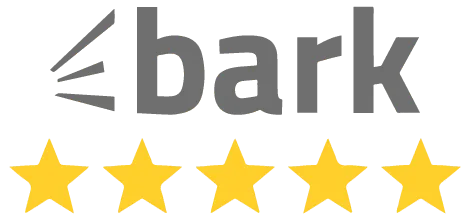Software & app development plays a central role in transforming ideas into real-world digital solutions. Whether it’s a mobile app for fitness tracking or enterprise software for financial reporting. Development brings functionality to life.
For businesses across the United States, investing in software & app development is no longer optional but essential. From free app development software for startups to enterprise-level platforms. The landscape is rich with opportunities.
This blog covers the full scope of software and app creation. You will learn the fundamentals and will discover top development tools. Also, you will get actionable insights on how to approach a custom solution efficiently.
What is Software & App Development?
Software & app development refers to the process of designing, coding, testing, and maintaining applications that solve real-world problems. It includes:
- Mobile apps (iOS and Android)
- Web applications
- Desktop software
- Embedded systems
There are various types of developments that address the requirements of individual users. It is possible to incorporate commercial, educational software, entertainment-oriented software, and productivity software in the application development.
Types of Software & App Development
1. Mobile App Development
Mobile applications are developed for smartphones and tablets. This comprises the native apps and hybrid apps. iOS and Android are leading the mobile world.
- Native apps use platform-specific languages like Swift (iOS) and Kotlin (Android).
- Hybrid apps use frameworks like Flutter or React Native.
Explore more about ios mobile app development and how it impacts user engagement and loyalty.
2. Web App Development
Web applications run in a browser and do not need installation. They are developed using HTML, CSS, JavaScript, and backend languages like Python or PHP.
Examples: Gmail, Trello, and Netflix
3. Desktop Software Development
These are computer programs that are installable. They have to be well integrated with the operating system.
Examples: Microsoft Word, Adobe Photoshop
4. Embedded Software Development
Embedded systems control devices like ATMs, smart TVs, or automotive software. This niche is vital for IoT.
Benefits of Software & App Development for Businesses
Businesses investing in app software development can experience:
- Automation accompanied by higher efficiency
- Enhanced customer experience through mobile apps
- Competitive edge through providing original features
- In-app purchases and SaaS models as a source of revenue growth
Choosing Between Custom and Off-the-Shelf Solutions
| Criteria | Custom Development | Off-the-Shelf Software |
| Cost | Higher initial investment | Lower upfront cost |
| Scalability | Highly scalable | Limited |
| Flexibility | Tailored to specific needs | General use |
| Ownership | Full control and IP rights | Vendor-dependent |
| Time to Deploy | Longer due to customization | Quick deployment |
For a tailored solution, consider exploring custom mobile app development to meet your specific business goals.
Top Tools and Platforms for App Software Development
Here are some of the best app development software and tools for different stages:
1. Free App Development Software:
- Thunkable: It is a drag-and-drop interface and great for beginners.
- Firebase: It is Google’s mobile platform and supports backend services.
2. Enterprise-Level Tools:
- SAP AppGyver: It is a low-code enterprise tool.
- IBM Cloud: It has a scalable infrastructure with AI features.
Essential Steps in the Development Process
1. Requirement Gathering
Begin by specifying your goals. Understand who your users are, the platforms they will be using, and what your primary features are.
2. Wireframing & UI/UX Design
Create a sketch or a wireframe. Design interactive mockups using tools like Figma.
3. Development Phase
Front-end and back-end code. Depending on your platform, select frameworks and languages.
4. Testing and QA
Bug test and speed, and device compatibility.
5. Deployment & Maintenance
Add to the app store or the internet. Make the app continually updated.
App Development Tips for Better Results
Follow these proven app development tips to increase success:
- Start with MVP (Minimum Viable Product)
- Focus on core functionality first
- Keep the UI intuitive
- Collect user feedback early and often
- Use analytics tools to monitor behavior
Real-World Example: How Starbucks Boosted Loyalty via App Development
Starbucks has come up with a mobile application that provides rewards, on-demand, and payments. It also enhanced the retention of the customers. As it has been stated, almost 40 percent of U.S. sales are the result of its loyalty program.
This showcases how software & app development can create new revenue streams.
Common Challenges and How to Avoid Them
| Challenge | Solution |
| Scope creep | Stick to the defined MVP scope |
| Budget overruns | Set clear milestones and estimates |
| Compatibility issues | Test on multiple platforms |
| Low user adoption | Conduct market validation early |
Trends in Software & App Development
- Low-code/no-code platforms like Thunkable are empowering non-coders.
- AI and ML integration in apps is improving user personalization.
- Cross-platform development tools (like Flutter) reduce cost.
- Security-first design ensures user trust.
For practical strategies, check out mobile app development tips.
Partner with Devsphere Technologies
Ready to build your digital solution? Whether you are a startup or an enterprise, choosing the right software & app development partner can define your success.
Contact our experienced developers, explore custom solutions, and invest in long-term scalability. Make your idea a reality.
Conclusion
Software & app development is the engine driving innovation. From enhancing customer experience to enabling new revenue models. A well-developed application offers tremendous value.
With a number of tools, development methodologies, and platforms available, businesses now have more flexibility than ever. Make informed choices, stay updated with trends, and focus on user-centered design to succeed.
FAQs
1. What is the difference between software development and app development?
Software development covers desktop, web, and mobile apps. App development is a specialization that primarily deals with mobile and web apps.
2. Which is the best app development software for beginners?
Tools like Thunkable or Firebase are suitable for those who are only starting to create apps. They have user-friendly interfaces and rich documentation.
3. Is free app development software good for startups?
Yes, for sure, startups may start with free MVP platforms. Such tools are not expensive, and they make it possible to quickly prototype.
4. How much does custom app software development cost?
It ranges greatly. Basic applications can run up to 10,000-50,000 dollars. Whereas more complex enterprise applications can be in the range of 200,000 and above. It depends on the features and scalability.
5. Why is iOS development preferred for premium markets?
iOS buyers spend more money per in-app purchase and have better engagement levels. This makes it a suitable platform when the business orientation is monetization.







